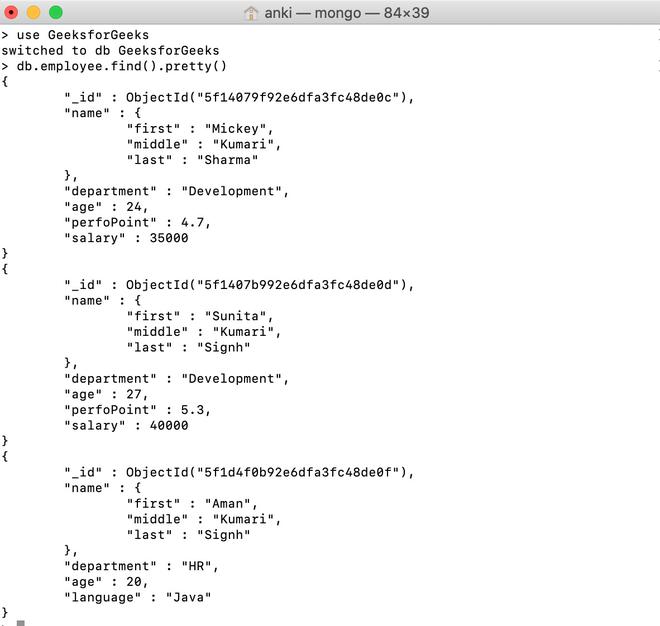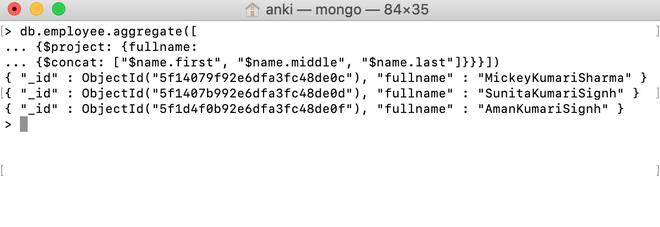MongoDB 提供了不同类型的 s字符串表达式运算符用于聚合管道阶段$连接 操作符就是其中之一。这操作员习惯于连接两个或多个字符串和返回单个字符串。
用法:
{ $concat:[ <expression1>, <expression2>, ... ] }
在这里,在这个运算符中传递的参数可以是任何有效的表达式,直到它们解析为字符串。
- 如果输入的参数解析为 null,则此运算符将返回 null。
- 如果输入的参数表示了缺失的字段,则此运算符将返回 null。
例子:
在以下示例中,我们正在使用:
Database: GeeksforGeeks
Collection:employee
Document: three documents that contain the details of the employees in the form of field-value pairs.

连接字符串使用$concat 运算符:
在这个例子中,我们正在查找部门雇员。在这里,我们将“我的部门是:”字符串与部门字段的值连接起来。
db.employee.aggregate([
... {$project:{"name.first":1, _id:0, dept:
... {$concat:["My department is:", "$department"]}}}])

连接嵌入文档中的字符串使用$concat 运算符:
在这个例子中,我们将通过以下方式找到员工的全名连接 name.first、name.middle 和 name.last 字段的值。
db.employee.aggregate([
... {$project:{fullname:
... {$concat:["$name.first", "$name.middle", "$name.last"]}}}])

相关用法
- MongoDB $mul用法及代码示例
- MongoDB $rename用法及代码示例
- MongoDB $setOnInsert用法及代码示例
- MongoDB $ln用法及代码示例
- MongoDB $floor用法及代码示例
- MongoDB $divide用法及代码示例
- MongoDB $add用法及代码示例
- MongoDB $ceil用法及代码示例
- MongoDB $sqrt用法及代码示例
- MongoDB $multiply用法及代码示例
- MongoDB $mod用法及代码示例
- MongoDB $log10用法及代码示例
- MongoDB $log用法及代码示例
- MongoDB $abs用法及代码示例
- MongoDB $strcasecmp用法及代码示例
注:本文由纯净天空筛选整理自ankita_saini大神的英文原创作品 MongoDB $concat Operator。非经特殊声明,原始代码版权归原作者所有,本译文未经允许或授权,请勿转载或复制。
